When the Coronavirus first erupted in the West, Italy was the hellish epicentre outbreak in Europe. The virus was first confirmed to have spread to Italy on 31 January 2020, when two Chinese tourists in Rome tested positive. By 19 March, the death toll in Italy has hit 3,405, more than China’s 3,249, according to data compiled by Johns Hopkins University.
It was so bad in Italy that President Donald Trump mocked and laughed at the country. However, there is one tiny Italian island that appears to be immune from the virus, and scientists could not understand why. Nope, we’re not talking about an island that is being locked down completely to prevent its population from infection.
First published by Frances D’emilio of AFP, Isola del Giglio, one of seven islands that form the Tuscan Archipelago, has raised scientists’ eyebrows after an incredible discovery – it has been spared from the pandemic. Apparently, the story started when Paola Muti, a cancer researcher, was stranded on the island thanks to Italy government’s lockdown.
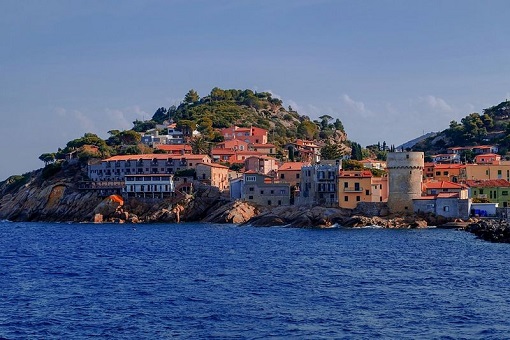
Paola’s mother was born on the Giglio Island and she often stays in the family home. So when up to three visitors had been infected with Covid-19, she readied herself for a rapid spread of the Coronavirus to the close-knit community of some 800 populations on the island. Dr Armando Schiaffino, the island’s only doctor who has been around for 40 years, was equally worried.
Dr Armando said – “Every time an ordinary childhood illness, like scarlet fever, measles or chicken pox strikes, within a very few days practically all get infected on Giglio.” But after days passed without any of the islanders showing any symptoms of Covid-19, Paola Muti decided to investigate the island, which has been inhabited since the Stone Age and was an important base to Julius Caesar.
Paola, an epidemiology professor attached at the University of Milan, was approached by Dr Armando, who said – “Hey, look, Paola, this is incredible. In this full pandemic, with all the cases that came to the island, nobody is sick.” On February 18, a man in his 60s arrived for a relative’s funeral, and had been “coughing all the way” though the service.
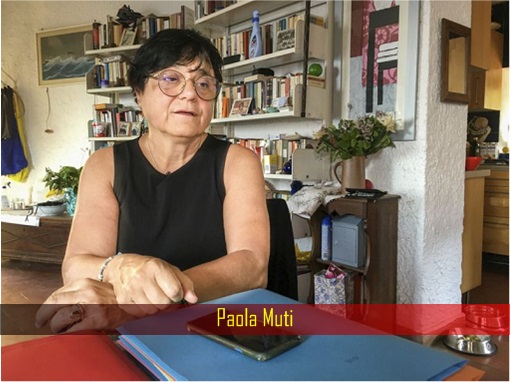
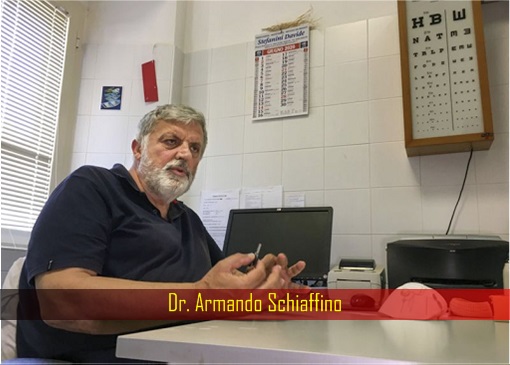
The man then returned to the mainland on the same day using the ferry, and died three weeks later in a hospital. Reverend Lorenzo Pasquotti, the priest who carried out the service for around 50 mourners, said – “After the funeral, there were greetings, hugging and kissing, as part of the custom. During the procession to the cemetery, there were more hugs and kisses.”
On March 5, four days before the declaration of a national lockdown, three more visitors came from the mainland and subsequently tested positive for Coronavirus on the island. One of them was a German man from the northern mainland Italy, the epicenter of Europe’s outbreak. For several days, he socialized with longtime friends in Giglio Island, including in public restaurants.
A week later, the German man went for a test due to bad cough. He was tested positive for Covid-19 and chose to self-isolate in the island. Surprisingly, none of the islanders whom had interacted or socialized with the German man or attended the funeral was infected or showed any symptoms of the virus, let alone triggered an island-wide spread.
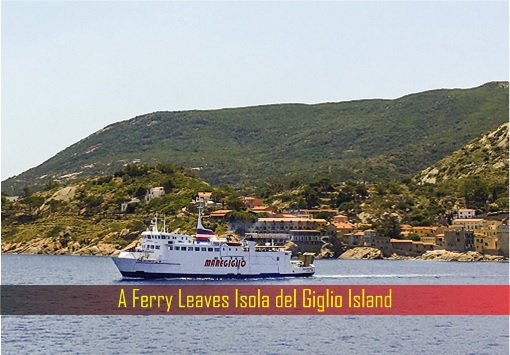
Another case saw an islander who had lived in Australia for 2 years went back to Giglio in mid-March during the lockdown to see his parents. Three days after his arrival, he developed a mild fever and was tested positive for Coronavirus. He would then self-isolate at his parents’ home. It appears that once an islander left the island for some time, he would lose his immunity.
Last month, a team of scientists from the King’s College London discovered that people who have recovered from Covid-19 may lose their immunity to the disease within months – suggesting that the virus could reinfect people year after year, like common colds. That means any vaccines developed could become useless or ineffective after a while.
But the study by the British scientists does not apply to the strange case in Giglio Island, where the people by default seem to possess immunity (as long as they stay on the island). In late April, just before the first lockdown travel restrictions would be eased, the islanders had their blood tested. Of the roughly 800 residents on the island, 723 volunteered to be tested.
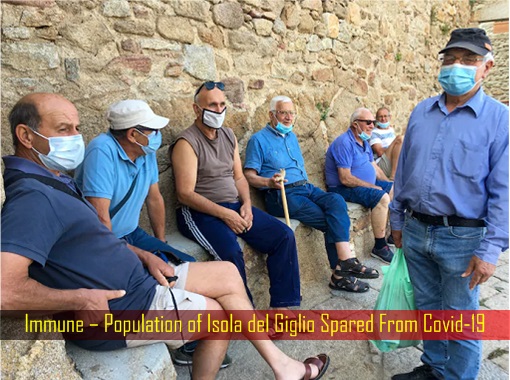
Amazingly, of the hundreds of islanders tested, only one was found to have antibodies – an elderly Gigliese man who had sailed on the same ferry to the island with the German visitor. More amazingly, since lockdown was lifted in early June, no other case has surfaced on Giglio – even with more tourists flocking to the island from mainland Italy.
Paola Muti, after her investigation, was intrigued as to why the Coronavirus virus “didn’t seem to interact” with the island’s native population. She could only guess that the people of the island were “not exposed enough” to get infected. Massimo Andreoni, head of infectious diseases at Rome’s Tor Vergata hospital, agreed that for unknown reason, some people are less capable of spreading the disease.
However, Daniel Altmann, a professor of immunology at Imperial College London, has another theory – “luck”. He said luck, or chance, might be the reason why nobody got infected in Giglio Island. The other explanation, according to Daniel, could be due to genetic variation among the island’s population. Paola Muti said she would like to do a genetic study someday.
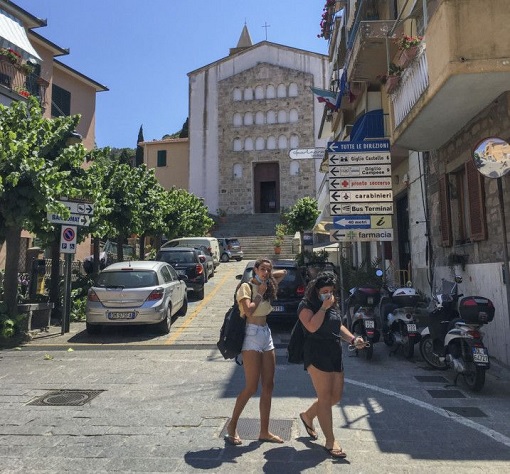
But the answer could be something called “T-Cells”. While the immune response to Covid-19 is still a mystery, scientists discovered that antibodies, which was the initial focus of study to find a solution to the pandemic, are only a very small part of the picture. T-cells, by contrast, are able to kill virus-infected cells, remember past diseases for decades, and trigger fresh antibody soldiers.
For example, people infected with another Coronavirus that was responsible for the SARS epidemic in 2003 still have a T-cell response to the disease 17 years later. That means T-cells may still be ready to protect SARS survivors today. One study found that some patients with no symptoms of Covid-19 had T-cells that recognized the virus – even when they had no detectable antibodies.
Alessandro Sette, a researcher at La Jolla Institute for Immunology in San Diego, said the “immune system is all about memory.” Therefore, perhaps the population of the Giglio Island has a pre-existing memory response of Covid-19. With many of the Gigliesi intermarrying through generations, it makes perfect sense that almost all of them posses the immunity to the virus.
Other Articles That May Interest You …
- Covid-19 Third Wave – The 3 Deadly Mistakes From Hong Kong That Every Country Should Avoid
- Jealous Of China & Russia? – The West Accused Chinese Of Sabotaging And Russian Of Hacking Vaccine Research
- How Vietnam Won The Coronavirus War And To Emerge The Biggest Winner In Economic Growth In Southeast Asia
- Bad News For Economy – IMF Slashes Growth Again, U.S. Hits Record 45,000 Covid-19 Cases & Jobless Claims Continue
- Second Wave Of Covid-19 Has Begun In The U.S. – But Not Everyone Cares, And They Would Pay The Price
- Lawsuits For Trillions Of Dollars Against China Over Spread Of Coronavirus – Here’s Why It’s A Waste Of Time
- 3 Coronavirus Variants Discovered – Surprisingly, “Type-A” Found In Americans, Wuhan’s Type-B And Type-C In Europe
- The World Is Working On 20 Coronavirus Vaccines – But It Could Take Up To 18 Months
- China Appears To Be Winning The Coronavirus War, And Other Countries Are Studying How The Chinese Did It
- Arabs Conspiracy Theories – Coronavirus Is The U.S. & Israel Biological Warfare To Cripple China’s Economy & Reputation

|
|
August 3rd, 2020 by financetwitter
|


|

|

|

|

|

|




























Comments
Add your comment now.
Leave a Reply